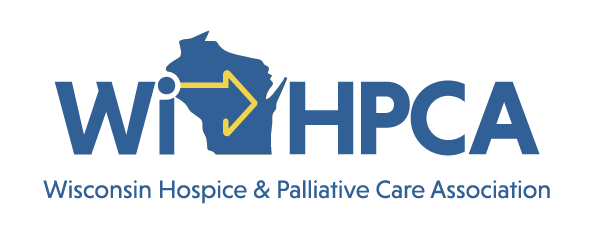WiHPCA’s top legislative priority for the 2025-2026 state legislative session is the passage of Senate Bill 39/Assembly Bill 23, which would create a state Palliative Care Council to advise the state Department of Health Services (DHS) and the state Legislature on key issues impacting palliative care and the patients and their families that depend on this type of care.
We are very close to passing this bill and need your expertise and passion to get the bill scheduled for a vote in the Wisconsin State Senate.
What You Already Know
- Palliative care is specialized medical care for people living with a serious illness such as cancer, heart failure, kidney failure, and advanced neurologic disorders, among others. This type of care is focused on providing relief from both the symptoms and stress of serious illness with the goal of improving quality of life for both the patient and their family.
- Palliative care is based on the needs of the patient, not on the patient’s prognosis. It is appropriate at any age and at any stage for a serious illness, and it can be provided along with curative treatment.
Why Create a Palliative Care Council?
- This council would analyze existing palliative care programs in our state, as well as identify ways in which health care providers could improve the quality of life for patients throughout Wisconsin. This council will help improve awareness of palliative care – which is often misunderstood, even in the field of health care – address the shortage of palliative care providers and increase access to this valuable type of care.
Additional Benefits of Palliative Care
Palliative Care Saves Costs
- Research has demonstrated that patients in hospital systems with palliative care programs experienced reduced emergency department visits, fewer days in intensive care, and fewer hospital re-admissions after discharge.
- According to a summary of palliative care studies prepared by the American Cancer Society:
- According to a 2020 study, hospital patients who received a quick palliative care referral had median hospital charges that were $56,700 less than other patients.
- A 2022 study found that palliative care provided to adult patients at home decreased their medical costs by 16.7%.
- Hospital patients with cancer who received a palliative care consultation within two days of admission experienced up to 32% lower health care costs, according to a 2016 study.
Status of the bill
- The state Assembly voted overwhelmingly (96-1) in May to pass Assembly Bill 23, which has now been referred to the Senate. On March 14, the Senate Health Committee voted unanimously (5-0) to send this bill to the full Senate.
As you can see, this legislation has overwhelming support in the Legislature. We need your help to get this bill over the finish line! Specifically, we need WiHPCA palliative care agency staff members to contact their state senators to ask for their support to bring this legislation to a vote in the full state Senate.
WHAT YOU CAN DO TO HELP:
Please email or call your state senator by Monday, February 2 and urge him or her to ask Senate leadership to schedule a vote on the Palliative Care Council legislation (Assembly Bill 23/Senate Bill 39) in order to improve awareness of this specialized type of care, address the shortage of palliative care providers, and increase access to this type of care. Ultimately, the intent is to better support patients living with life-limiting illnesses.
Don’t know who your state senator is? Just click here and type your home address in the “Enter address” field at the top of the screen to find that out, as well as the appropriate office phone number and email address.
Please use WiHPCA’s sample e-mail when contacting your state senator. This will only take you a few minutes. Simply cut-and-paste it into an email and send it off. You are also welcome to customize it based on your experience with palliative care. [If you do so, please be sure that any anecdotes/information you share is HIPAA-compliant.] If you prefer to call your state senator’s office, you could use the sample e-mail as a script.
If you have any questions, please contact the WiHPCA Government Affairs Team at tim@hovenconsulting.com or nathan@hovenconsulting.com.
Thank you for your advocacy!
Note to Badger Bay: Please make this a link to the email template that we will provide to you separately.
